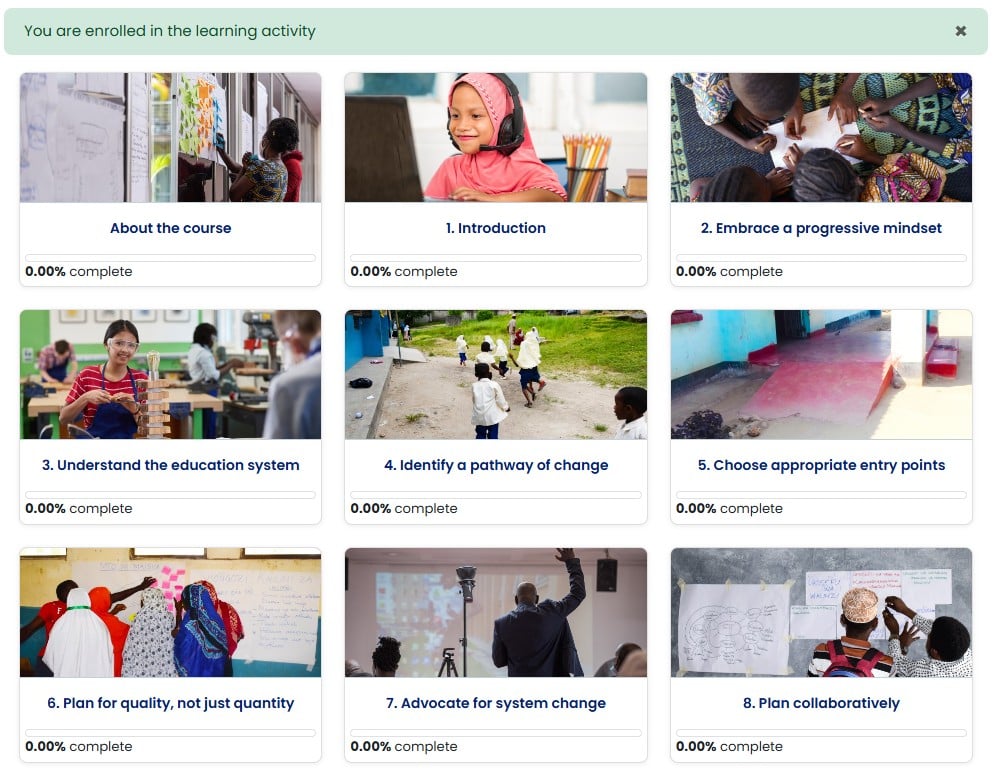
A New E-Course Empowers Advocates to Champion Inclusive Education
Born from a powerful regional collaboration between Education Out Loud grantees, this free Moodle course equips civil society actors with practical tools to embed social inclusion in education advocacy. Join today and be part of the change.
Born from a powerful regional collaboration between Education Out Loud grantees, this free Moodle course equips civil society actors with practical tools to embed social inclusion in education advocacy. Join today and be part of the change.
Access to quality inclusive education is a human right. Yet in many low- and middle-income countries, structural barriers—such as inaccessible learning environments, discriminatory attitudes, and underfunded policies—combined with intersecting factors, continue to exclude marginalized groups from enjoying this fundamental right. Civil Society Organisations (CSOs), National Education Coalitions (NECs), and regional coalitions tirelessly advocate to dismantle these challenges. However, despite their shared commitment, many of these actors operate in fragmented ways, lacking collaborative spaces to exchange knowledge, share strategies, and collectively strengthen their impact.
To break down these silos, Education Out Loud launched the Social Inclusion in Education Learning Collaborative, facilitated by learning partner Christian Blind Mission. This collaborative was structured as a virtual blended learning experience, combining monthly expert-led webinars on foundational topics like disability-inclusive budgeting, peer-led exchanges, and bi-monthly mentorship sessions that provided tailored support to translate theoretical knowledge into concrete project plans.
Introducing the Inclusive Education Moodle Courses
The highlight of this collective work is a suite of three online courses, now freely accessible on the Education Out Loud Moodle hub. Each module is designed as a self-paced short course, typically completed within 3–5 hours. Upon completion, participants receive a certificate.
1. Supporting Inclusive Teaching and Teacher Development
This module introduces core concepts, frameworks, and rights-based approaches that underpin inclusive education, ensuring participants gain a solid theoretical foundation. Duration: ~3–4 hours. Key outcomes:
- Identify essential skills teachers need to be inclusive
- Recognise effective interventions in diverse contexts
- Plan for contextually relevant professional development (in-service and pre-service)
2. Inclusive Programming and Budgeting for Inclusive Education
Designing and planning programs that address exclusion and promote equity, with a strong focus on practical application. Duration: ~4–5 hours. Key outcomes:
- Develop a system-change mindset
- Identify realistic entry points for advocacy
- Integrate budgeting creatively and flexibly
- Prioritize quality and equity in planning
3. Monitoring Inclusive Education
This final module focuses on accountability systems, inclusive teaching practices, and strategies for continuous improvement.
Duration: ~3–4 hours. Key outcomes:
- Make assessments more inclusive
- Support teachers in continuous learner monitoring
- Design participatory monitoring and evaluation processes
- Link data to advocacy for long-term systemic change
Complemented by learning briefs, external resources, and session materials, these modules offer a robust toolkit for advocacy and organizational change – helping CSOs move from understanding principles to applying them effectively. We invite all civil society organisations, networks, and advocates to access these valuable resources and join our mission. Together, we can champion the right to quality, inclusive education for every child
